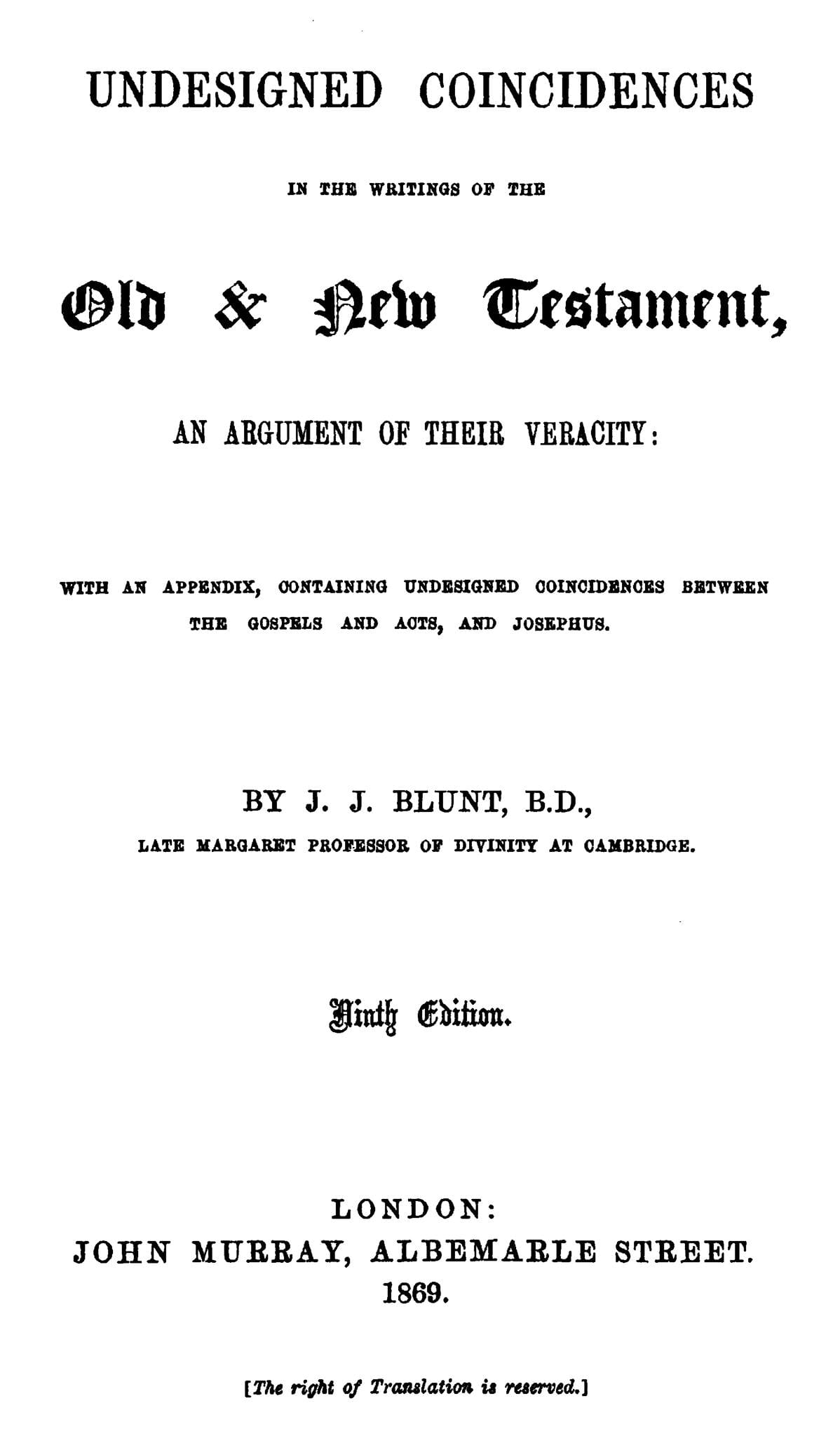This is an exceptionally clear and vigorous presentation of the historical argument for the resurrection, which Chalmers regards as the key argument for the truth of Christianity. Simon Greenleaf had read it and quotes several pages from the third chapter in a long footnote in his Examination of the Testimony of the Four Evangelists (1846) [A].
The Evidence is also historically interesting as a methodological polemic in favor of a factual apologetic over what might (somewhat prejudicially) be called a sentimental one. Chalmers characterizes his own approach as “Baconian” and “inductive,” and this self-conscious empiricism shapes his work. From this standpoint he criticizes both those who put their trust in the internal evidences (the moral excellence of the gospel, for example) and those like Rousseau who think that they can overthrow the direct historical evidence by their subjective dislike of the doctrines of Christianity. We have, Chalmers argues, no external standpoint from which to judge the reasonableness of revealed doctrine, for outside of revelation we have no experience of God and therefore no independent standard by which to make a judgment regarding what God ought to do.
The Evidence was a young man’s work, written before Chalmers was 40, and at times he seems to overstate the case against the internal argument, though there is an important measure of truth in what he says. Later, in his Introductory Essay to The Christian’s Defense Against Infidelity (1829), he gives a more sympathetic account of the force of the internal evidence.




